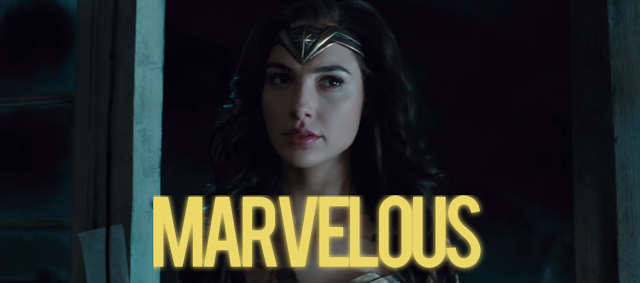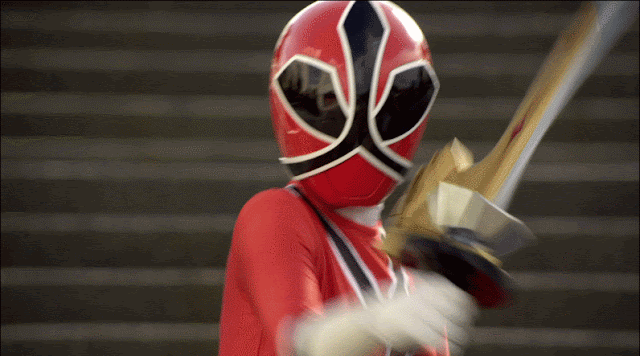Wonder Woman: Marvelous
"You can save the world."
Wonder Woman is here and it is not a terrible movie. After hoping beyond hope that Batman v. Superman could be good despite all evidence on the contrary, we hedged our bets on Suicide Squad - an edgy, darkly comedic tale that looked just different and far removed enough from Batman v. Superman that it might be a decent Guardians of the Galaxy riff. We all know how that one turned out. Needless to say, there wasn't exactly much hope that Wonder Woman would be able to salvage the terrible reputation held by the rest of the DC Extended Universe, especially since creative team after creative team seemed unable to capture the essence of what made these superheroes, well, superheroes to begin with.
Man of Steel was an excessively dark, brooding take on the character which might have worked fine as an Elseworld's or "What If" kind of tale, but as a Superman origin story it seemed far more interested in aping the tone of Christopher Nolan's Dark Knight Trilogy instead of going for the hope that the movie insists is at the forefront of its thematic elements despite the same movie's inability to let go of its director's fetish for dark, destructive tales. Not that Zack Snyder is a bad director or anything like that (though there is certainly an argument to be made for that line of thinking) since his visual style is incredibly striking and unique, but the decision to place him at the forward bow of the fledgling DC Extended Universe was likely a bad call. Considering the terrible followup Batman v. Superman and the unfortunate fate that befell Suicide Squad, it was clear that the "Nolanization" of the larger DC Universe by Snyder and his creative team was not something that would end up profiting Warner Brothers in the long run. Thus, Patty Jenkins was given much more creative control over her project, the Wonder Woman solo movie, and brought a product that seemed impossible in the DCEU up until now: a good film.
A lot of this has to do with Patty Jenkins' insistence that sincerity does not equal cheesiness or corniness, and that being sincere probably means you're doing something right. This is important because Wonder Woman is kind of a weird character with a backstory as baffling or even more baffling as any other superhero's. She was molded from clay by Queen Hippolyta and given life by the Greek god Zeus, then raised among the monogender Amazon warriors to await the day when their superior powers would be needed in the world of man. Strange, but in Patty Jenkins' eyes - she saw something else: she saw an opportunity to create a feminist movie without making it obvious. She deliberately chose not to hammer home any kind of overzealous feminist themes in the movie, but there are plenty there; she knew that one could easily swing two ways when it comes to a female protagonist - either she would be left useless in her own movie by the male supporting cast or she would be altogether too competent, coming off as insufferably perfect. Either way, it would be bad. Jenkins managed to balance both in this film, while also bringing in the sincerity I mentioned earlier. Wonder Woman, in this film, is a figure of hope - and much more effective one than Superman was in his own film.
To that extent, Wonder Woman does something that many people had been wondering if DC would ever do - and, with time, seemed more and more likely that DC would eventually relent. They decided, for better or for worse, to copy the other guy's formula.
The other guy, of course, being Marvel Studios.
With the immensely successful Marvel Cinematic Universe, Marvel Studios created a media juggernaut unlike any other. Bringing in comic book-style continuity to the silver screen was a big enough feat as it was, but maintaining the quality of those movies as consistently as they have (to the point that none of the films are considered rotten by aggregate Rotten Tomatoes, and the average positive rating being 82%) is even more impressive. A lot of people criticize Marvel, however, for having formulaic movies. Sure, they say, they make make consistently good movies but only because all of them feel very samey. Personally, I disagree with this, but for the sake of argument let's say that this "Marvel formula" does exist.
In many ways, it feels like Wonder Woman follows that same formula, to the point that it almost has scene-for-scene similarities with the first Thor and Captain America movies while it is most structurally similar to movies like the first Iron Man, Ant-Man, and Doctor Strange. Seriously, the scenes on Themyscira feel awfully similar to the scenes on Asgard, complete with little Thor/Loki/Diana that are told that they are destined/not destined for a specific, er, destiny. And the scenes in World War I are almost point-by-point the same as the scenes in World War II, complete with Diana's own version of the Howling Commandos. It's crazy. But it works.
Just goes to show that the only thing that DC needed to be successful was to copy Marvel. Who knew?




Comments
Post a Comment